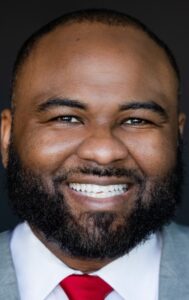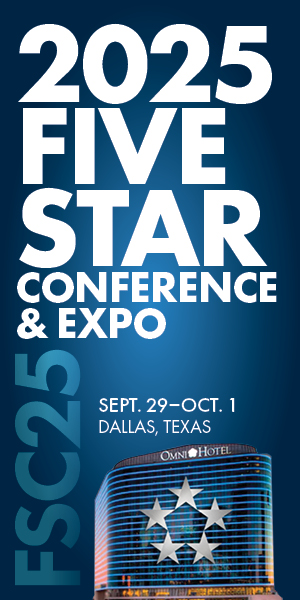This piece originally appeared in the April 2024 edition of MortgagePoint magazine, online now.
Closing the homeownership gap is a marker for progress in our country. As a result, increasing homeownership, particularly among diverse and underserved communities, is a priority for many across the mortgage and financial services industries, yet progress can sometimes feel like an uphill battle.
MortgagePoint sat down with Wil Lewis, Global Chief Diversity, Equity, Inclusion & Talent Acquisition Officer for Experian, and Gwen Garnett, the Executive Director of the HomeFree-USA HBCU Center for Financial Advancement, to discuss some of the challenges, as well as how the mortgage and financial services industries can drive change and the role that financial education plays in closing the homeownership gap.
Lewis was named the first-ever Global Chief Diversity, Equity, Inclusion & Talent Acquisition Officer for Experian. In this role, he strives to build on the company’s commitment to diversity, inclusion, and equity, institutionalize inclusive processes as a key to innovation, ensuring that every employee and key stakeholders feel connected to the organization and culture, and that talent represents the communities in which Experian operate. Prior to this role, Wil was Diversity & Inclusion Executive and Head of Bank of America’s global disability LGBT+, and military strategies. Wil also had responsibility for the firm’s Global Employee Networks and D&I recognition, responsible for 11 networks with more than 350 chapters in 40 countries with 180,000-plus memberships.
Garnett is Executive Director of the HomeFree-USA HBCU Center for Financial Advancement in Riverdale, Maryland. In her role, Garnett focuses on providing financial, leadership, and professional development training for students at historically Black colleges and universities. She is the former Neighborhood Lending Executive for the Consumer Real Estate Division of Bank of America. She is the recipient of many awards for her work in diversity and mentoring, and is an active member of St. Paul Baptist Church, where she serves in several ministries.
Q: Tell us about the current state of homeownership?

Wil Lewis: While homeownership remains a goal for many individuals and families, the reality is, various macroeconomic factors have made it more difficult to attain over recent years, including rising home prices and interest rates. In fact, the U.S. Census shows homeownership continues to decline for all Americans; the rate recently dropped to 63.1%, the lowest point since 1970.
The trend is more troubling among diverse communities. A 2021 National Association of Realtors (NAR) study found the homeownership rate among Black Americans (43.6%) and Hispanic Americans (50.6%) significantly lags behind Asian Americans (62.8%) and white Americans (72.7%).
Gwen Garnett: In order to understand the current state of housing, we must understand the impact of the past. Historical policies and practices, such as redlining, made it more difficult for minority communities to buy homes in certain areas.
Even though these policies and practices are now illegal, with homeownership considered a building block to creating generational wealth, many individuals and families from minority communities are forced to start the home buying process with fewer financial resources at their disposal. This makes homeownership still feel unattainable, particularly for first-time homebuyers.
Q: How can the mortgage and financial services industries drive change?

Garnett: Stay the course. Too often, mortgage assistance programs are pulled together in a piecemeal fashion, and unfortunately, viewed through a transactional lens. There’s an expectation for immediate results, but change takes time. Programs designed to create a path to homeownership for low- and moderate-income communities need to offer sustainable solutions.
Let’s take some of the down payment assistance programs. Sure, these programs help individuals and families from diverse communities access the funds to take out a mortgage, but homeownership is much more than a down payment. Families need to pay property taxes, save money, put food on the table and account for eventual maintenance and repairs. Pushing for programs that address the challenges that many families experience when it comes to remaining in their homes is a positive step forward.
Lewis: Beyond providing access to financial resources, making educational materials available can have a significant impact.
Experian recently conducted a survey comparing the home buying experiences of Black, Hispanic, and white consumers, and one barrier for Black and Hispanic consumers aspiring to become homeowners is not knowing where to start.
Moreover, 58% of Black and Hispanic consumers who were denied a mortgage didn’t know what they needed to do to get approved in the future.
Navigating the homebuying process can be difficult, even if you are familiar with the financial services industry. Take the time to assess the knowledge gaps and common questions that individuals may have about certain financial products. Partner with organizations that have relationships with underserved communities and listen to the challenges they face. Perhaps, most importantly, cater your educational materials to your audience. Everyone enters the home buying journey at a different stage; the more relevant we can make the information, the more helpful it will be.
Q: What role does financial education play in closing the homeownership gap?
Garnett: Effective financial literacy can provide individuals and families from diverse communities with the knowledge to navigate the housing market.
For example, HomeFree-USA has a program that prepares renters for mortgage approval and sustainable homeownership through personalized financial guidance and credit counseling. Our intermediary network oversees 53 affiliated community- and faith-based housing counseling agencies across the nation.
These agencies play a powerful role in offering on-the-ground learning and service assistance to underserved communities and prospective homebuyers.
Lewis: Helping families buy a house is one thing, but making sure they’re equipped to leverage that asset to build generational wealth is another. Far too many families secure enough money for a down payment, only to realize they didn’t account for other expenses. Financial literacy is a journey, and homeownership is just one stop along that journey. Basic financial concepts, including building and maintaining good credit, budgeting, and saving, as well as deducting your mortgage interest from your taxes, will better position homeowners for the long-haul.








